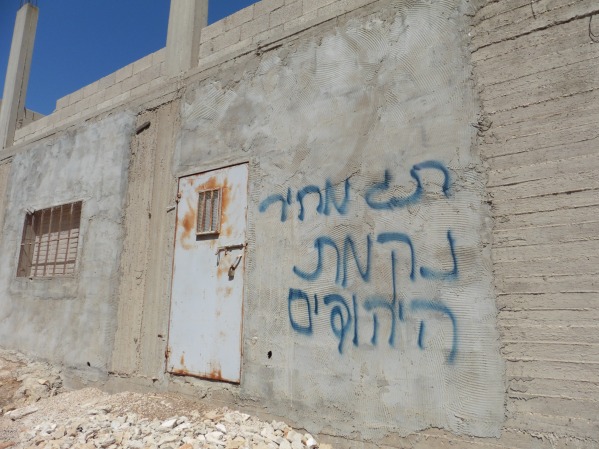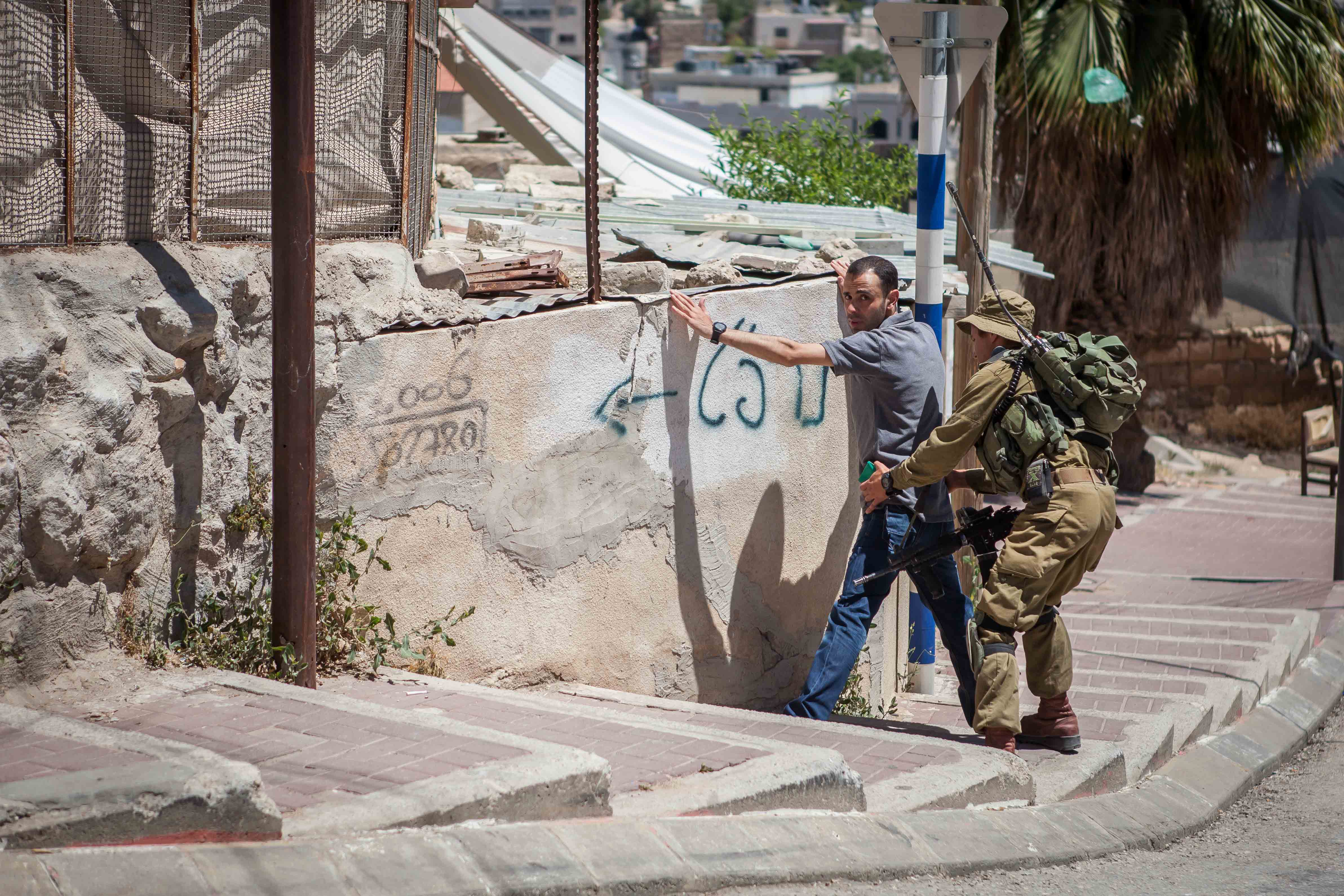Category: Reports
-
Price tag attack in Aqraba, farmer’s house attacked
2nd July 2014 | International Solidarity Movement, Nablus team | Aqraba, Occupied Palestine Fadi Bassem is a farmer who lives in the village of Aqraba, 20 km south of Nablus, in the northern half of the West Bank. He lives with his extended family, 15 people in a single house. At 03:30 in the early hours of…
-
VIDEO: Israeli soldiers and settlers attack Palestinians and ISM volunteers in Hebron
2nd July 2014 | International Solidarity Movement, Khalil Team | Tel Rumeida, Occupied Palestine For the past two days in al-Khalil (Hebron) Israeli soldiers have stopped and searched many Palestinians in Tel Rumeida. At approximately 22:00 two nights ago, a colonial settler began aggressively photographing Palestinian children who were playing football in the street on Tel Rumeida hill. Two ISM activists began…
-
Interview with 15-year-old Awne Shamsiyeh: “the camera is like a weapon, so I can resist non-violently”
29th June 2014 | International Solidarity Movement, Khalil Team | Tel Rumeida, Occupied Palestine In Al-Khalil (Hebron) in the Tel Rumeida area, 15-year old Awne Shamsiyeh lives with his family. After the Hebron Agreement (1997), the city was divided into two areas, H1 (supposedly under full Palestinian Authority civil and security control) and H2, (under full Israeli military civil…



